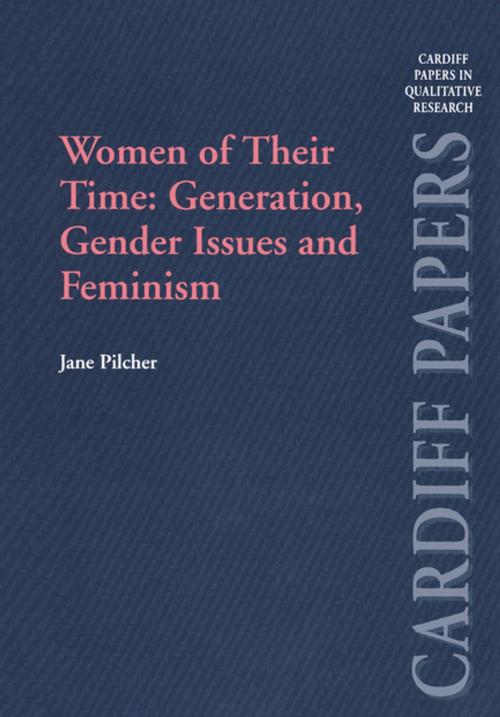Women of Their Time: Generation, Gender Issues and Feminism
Nonfiction, Social & Cultural Studies, Social Science, Gender Studies, Women&| Author: | Jane Pilcher | ISBN: | 9781351871877 |
| Publisher: | Taylor and Francis | Publication: | July 5, 2017 |
| Imprint: | Routledge | Language: | English |
| Author: | Jane Pilcher |
| ISBN: | 9781351871877 |
| Publisher: | Taylor and Francis |
| Publication: | July 5, 2017 |
| Imprint: | Routledge |
| Language: | English |
This book argues for the importance of age as a source of diversity and difference amongst women. It compares three generations of women’s accounts of a range of gender issues, including the domestic division of labour, equality, abortion and sexuality. It also compares their understandings of and orientations toward the feminist movement. Drawing on Karl Mannheim’s argument that an individual’s location in historical time shapes their social outlooks or world views, it is shown that women of different ages do not share the same gendered life courses due to differing cohort memberships. Consequently, women of different ages interpret, define and give meaning to gender issues and to feminism in varied and contrasting ways. A key concern of the book is to show that findings from qualitative studies are an important supplement to surveys of cohort differences in women’s gender attitudes, in that they are more revealing of the complex ways cohort influences the construction of gender issues, including the very language used to do so.
This book argues for the importance of age as a source of diversity and difference amongst women. It compares three generations of women’s accounts of a range of gender issues, including the domestic division of labour, equality, abortion and sexuality. It also compares their understandings of and orientations toward the feminist movement. Drawing on Karl Mannheim’s argument that an individual’s location in historical time shapes their social outlooks or world views, it is shown that women of different ages do not share the same gendered life courses due to differing cohort memberships. Consequently, women of different ages interpret, define and give meaning to gender issues and to feminism in varied and contrasting ways. A key concern of the book is to show that findings from qualitative studies are an important supplement to surveys of cohort differences in women’s gender attitudes, in that they are more revealing of the complex ways cohort influences the construction of gender issues, including the very language used to do so.















